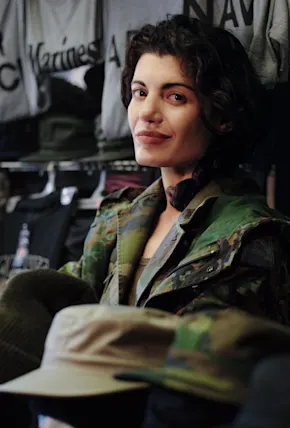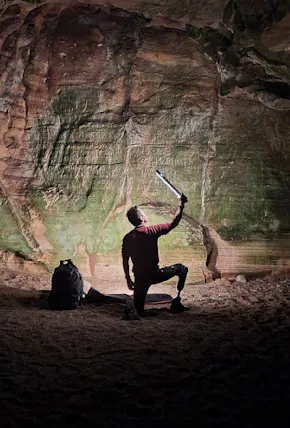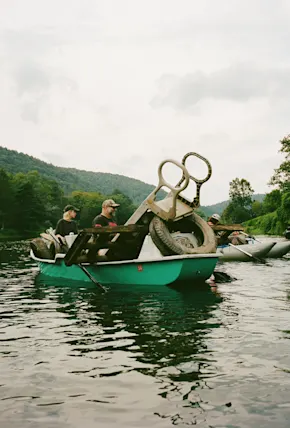Let's talk about the early 2000’s Robot Food days for a moment. The film trilogy was hugely influential, from the art direction and packaging, to the style of riding and the personalities. Do you remember at the time feeling that what you were doing was different?
Yeah, so it was interesting times. I started filming with standard films and it was probably one of the biggest lessons in my career that really put me in a track through to become a pro snowboarder. I mean, the work ethic was just incredible, and that kind of laid a foundation for me, and a lot of the other guys too.
But at the same time, we kind of felt like, okay, this is a really cool chapter in our lives, but we couldn’t really determine how we were seen as snowboarders because we were filming for someone else.
So after three years doing that, we all kind of felt the same, that we should just do our own movies—do what we want to do and express our snowboarding the way we want to. It was me, David Benedek, Chris Englesman, and Bobby [Meeks], Joni [Malmi], and Travis Parker. So that’s sort of where Robot Food came from.
We put together a plan and a lot of the creative stuff came from Travis. I think Travis has such an incredible mind, and for all the individuals, having that freedom to do whatever we wanted—that’s why the films were so real and authentic.
So wherever we went, we always went with 12 or 13 guys. That’s one big thing that was really different from any of the other videos I’ve ever done—we always traveled as a crew. We’d just go and travel the world. And we might have split into three different crews at the spot, but we were always together.
I think that’s why the whole project, the videos, have that kind of energy and feel, because we were in it together. We were having that experience as a crew.
Now looking forward, what’s to come in the near future from Mizu that you’re excited about?
Yeah, the big thing is a new initiative we’re launching in the Spring that’s a 15-day challenge to get people to go reusable. I always feel like our product is a vehicle for a bigger story, a vehicle for changing people’s habits permanently. If you do something 14 days in a row, you can create a new habit that becomes part of your life. We’re doing it right now for business to business, but we’ll be challenging all of our customers soon.
Also, part of that is figuring out how we can make going reusable easier. We still have a problem with not having filling stations available everywhere we go, so with our nonprofit, Protecting Where We Play, we’re starting to put these public water stations in places where we play.
It’s in line with what we’re doing with Mizu, it’s just really trying to really hammer home the bigger story and bigger mission behind it all. We know we can change the world with water stations, but if we start putting these in places, maybe other companies and people will start thinking they should start doing it as well. We just want to make people think about their actions, and hopefully be able to make more water stations, and make reusable easy.
What’s one thing we as individuals can start doing tomorrow to help make a positive impact on the world?
It’s really a simple thing, just being aware, challenging yourself to choose reusable over single use. You can do it for a couple days, two weeks, and count your footprint—count how many single use products you’ve saved—you’ll be blown away.
It’s not hard at all, it’s just an issue of integrating that habit into your lifestyle. Once you’ve done that, that’s it, you’re done. You’re not creating that footprint anymore.
It’s just being aware of all your actions. Little things go a long way.










